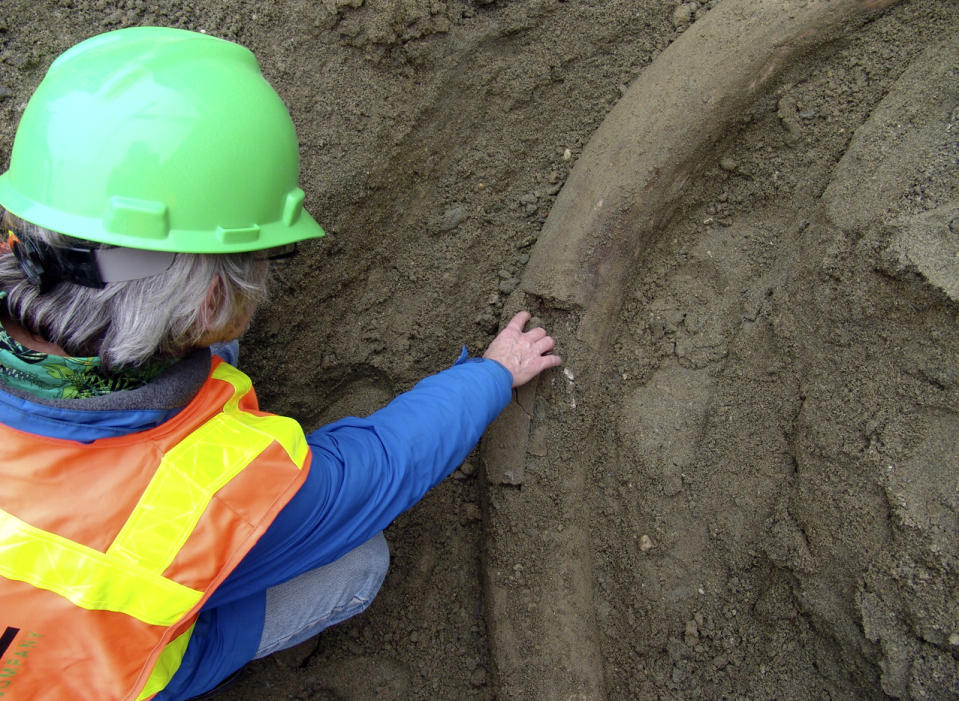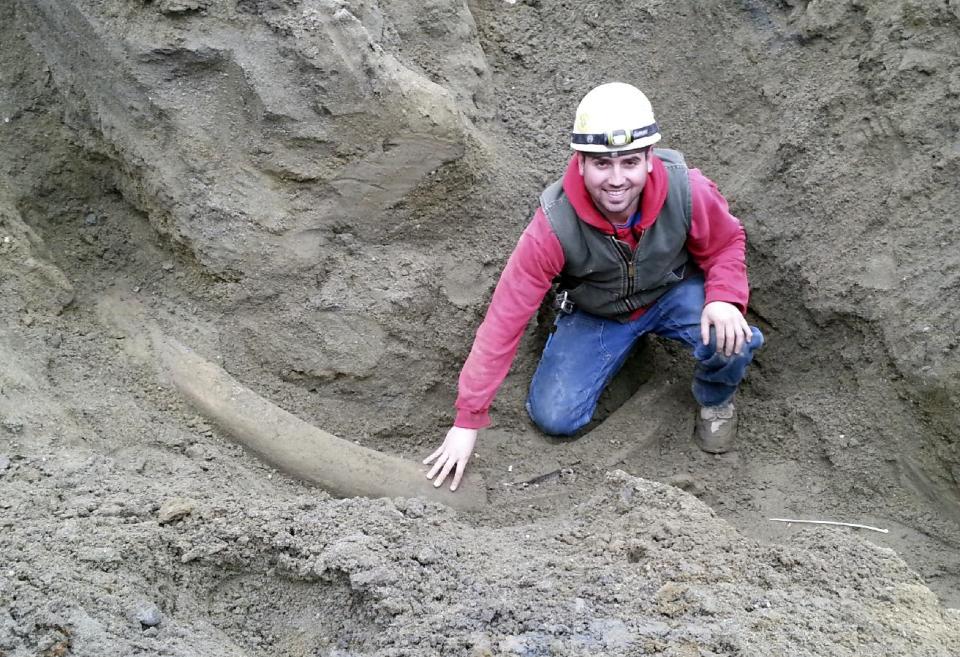Museum hopes to excavate Seattle mammoth tusk
SEATTLE (AP) — Paleontologists from the University of Washington hope to move an ice age mammoth tusk uncovered in a Seattle neighborhood to a museum on campus.
Christian Sidor (SEE'-door) of the Burke Museum says carbon dating could provide a better picture of the time about 10,000 years ago when the ancient elephant relative followed the retreating, 3,000-foot ice layer.
The tusk is very rare, but similar tusks and mammoth teeth found in Washington have made the Columbian mammoth the state fossil.
Workers with Transit Plumbing were excavating a construction site Tuesday in the city's South Lake Union area when they hit something hard and uncovered the tusk. Owner Jeff Estep says they stopped work and called the experts.
The museum is awaiting approval from the property owner to start removing the tusk.





